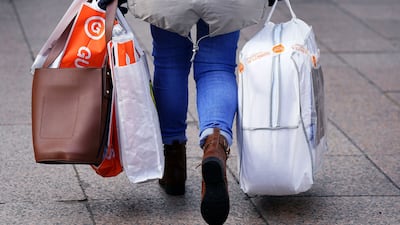In our rapidly changing digital era, shopping experiences continually evolve, embracing new features and technological advances.
While many prefer the convenience of shopping from their homes, others are still sceptical and find it challenging to adjust to this new era. Trust issues with privacy, data security and reliability persist, and some still seek the authenticity of in-store shopping.
As some businesses switch entirely to online platforms, others have integrated technological innovations to facilitate a hybrid approach to shopping. These stores aim to preserve the essence of the traditional retail experience while incorporating modern conveniences. By providing customers with the same service options online as they would receive in-store, the approach aims to strike a balance between the familiarity of physical shopping and the convenience of browsing online.
Retail stores
Blending online shopping with the tactile experience of a physical shop, online retailer 6th Street has opened an in-mall outlet.
The shop offers minimal direct human interaction, embracing the benefits of online shopping, but it also offers the tactile benefits of a traditional experience, such as seeing and trying on products before you buy them, reducing returns and eliminating shipping.

The online fashion retailer opened its physical outlet in Dubai Hills Mall last year, offering a range of clothing, accessories, beauty products, shoes and bags for men and women.
The store features seating areas and standing desks equipped with tablets, allowing customers to browse and shop online. Shoppers have the option to select a maximum of five items, and choosing between trying them on in fitting rooms or seeing them at their designated stations. Upon selection, customers enter their phone number to receive updates, including order numbers and notifications when the items are ready to be tried on.
Once in the fitting room, a large monitor and integrated smart technology tailor the customer’s experience. A few seconds after the fitting room door is closed, a closed cupboard automatically opens, revealing the customer’s chosen items. For size or colour exchanges, customers can request modifications through the monitor, prompting the cupboard to exchange items accordingly.
Upon completion, customers take their desired items and proceed to the checkout counter for payment.
Brands such as Tommy Hilfiger, Calvin Klein and Nike can be found at 6th Street, although a setback of the physical outlet is the limited brands and items available, unlike the online store, which offers the full catalogue.
Virtual grocery shopping
Union Coop has launched a virtual reality application that aims to transform online grocery shopping into an immersive experience. Through virtual reality, users can explore the physical store, mimicking a genuine shopping experience.
Shoppers can choose to use a VR headset to browse the aisles, but for those without a VR headset (or those not keen on the experience), there's an alternative mobile gaming version of the app. This version features on-screen buttons that enable users to navigate through the virtual store.
The app mirrors the physical store layout, displaying products on shelves with prices and detailed descriptions. It provides multiple functionalities, including virtual assistance. Users can search for products and get shown to the product’s location in the virtual store. Additionally, the app incorporates a shopping cart and a 360-degree view for a comprehensive browsing experience.
After browsing the aisles, users have the flexibility to modify their carts or proceed to checkout. In line with traditional online shopping, users can then check out and have their selected items delivered directly to them.
Buying property online
Damac Properties' website includes the 3D Virtual House Tours function, which allows prospective buyers to explore properties using a VR headset or through a 3D, 360-degree view.
The tool provides users with more than just a photo glimpse of properties; it allows them to inspect floor plans, measurements and even customise flooring options.

Customers can also access pricing information, request a call from an agent, explore the property's location, see community insights and view payment plans.
Designed to be a time and cost-saving service for buyers, as house-hunting or property visits can be tiring and time-consuming, this feature allows individuals to explore properties virtually and then decide whether to physically visit the ones that interest them.
Cosmetic consultations
Beauty brand Shiseido provides free virtual skin analysis via its website using artificial intelligence. This tool compares a user’s skin against a database of 30,000 images featuring diverse ethnicities and ages, enabling personalised recommendations.

The analysis involves studying 100 facial metrics to suggest suitable Shiseido products. Users start by aligning their faces for scanning, which generates insights about skin age, health, and details regarding spots, wrinkles, texture and dark circles. After a user chooses areas for improvement, the feature suggests relevant products available for purchase.
This application is particularly helpful for skincare newcomers, or those unsure about product choices. It's worth noting that during the skin analysis process, results may differ according to the lighting, face position and camera quality of the device the user is using.

